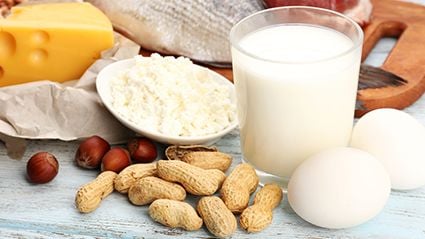Highest odds seen for plant protein, which was also linked to absence of physical function limitations and good mental status
By Elana Gotkine HealthDay Reporter
TUESDAY, Jan. 23, 2024 (HealthDay News) — Dietary protein intake, especially plant protein, is associated with higher odds of healthy aging, according to a study published online Jan. 17 in the American Journal of Clinical Nutrition.
Andres V. Ardisson Korat, D.Sc., from Tufts University in Boston, and colleagues examined the long-term role of dietary protein intake in 48,762 healthy aging female participants from the Nurses’ Health Study cohort, aged younger than 60 years in 1984. Healthy aging was defined as being free from 11 major chronic diseases, having good mental health, and not having impairments in cognitive or physical function; 3,721 participants met this definition.
The researchers observed a significant association for protein intake with increased odds of healthy aging. Per 3 percent-energy increment, the odds ratios for healthy aging were 1.05, 1.07, 1.14, and 1.38 for total protein, animal protein, dairy protein, and plant protein, respectively. There was also an association seen between plant protein and higher odds of absence of physical function limitations and of good mental status. Significant positive associations were seen for the isocaloric replacement of animal or dairy protein, carbohydrate, or fat with plant protein (odds ratios for healthy aging, 1.22 to 1.58 for 3 percent-energy replacement with plant protein).
“Our study contributes evidence to the role of protein in the etiology of healthy aging and adds specific insights to the importance of protein sources and relevant etiologic windows in midlife, which may contribute to providing recommendations regarding the amount of protein intake to promote healthy aging,” the authors write.
Copyright © 2024 HealthDay. All rights reserved.








